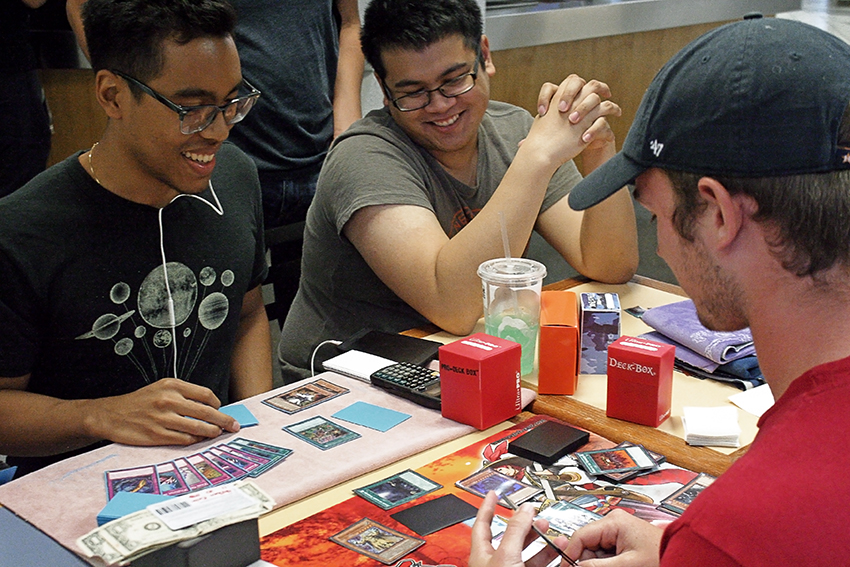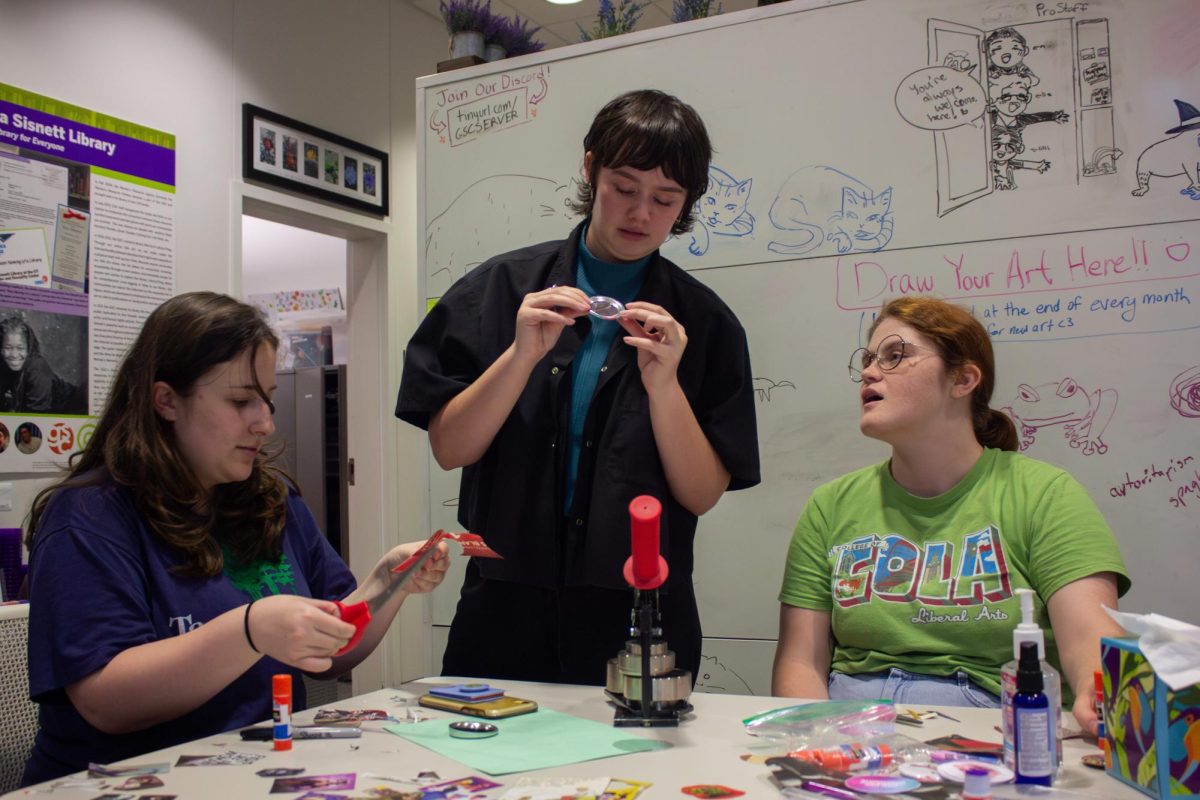For some, the days of dueling with Yu-Gi-Oh! cards are stuck in the early 2000s, but for these UT students and Austinites, the game has not been lost in the shuffle.
Yu-Gi-Oh! cards made their first appearance in the United States in 2002, winning over children’s hearts with mysterious and fanciful creatures. Since 2012, Resurrected Games, a game store in Dobie Mall, hosts weekly Yu-Gi-Oh! tournaments in the building’s food court. Though the usual turnout is about 30 players, as many as 60 people have attended in the past.
Troy Whitmoyer, store manager at Resurrected Games, oversees the tournaments and sees them as a fun, yet unorthodox UT tradition.
“These tournaments are continuing to grow because of players coming in and, especially considering we’re part of UT, every year there’s new students,” Whitmoyer said. “Every year there’s people already playing Yu-Gi-Oh! who will say, ‘This is where you go each week if you want to play.’”
Because new card sets are released every month the game’s constantly evolving nature keeps Yu-Gi-Oh! fresh for players. Whitmoyer said even though the game has gotten more complex over time, the appeal of the tournaments lies in watching players help each other.
“The players bring their friends, show them how to play the game and make a new deck,” Whitmoyer said.
The Yu-Gi-Oh! tournaments are tailored for longtime players and newcomers alike, many of whom are not UT students. 23 year-old Concepcion Olivo, a tournament regular, said he began with $20 worth of cards and has now gradually accumulated $600 worth of decks in the last year.
“The first time I played was here, I started out with a bad deck,” Olivo said. “Ever since, it became more competitive for me — you don’t play for fun. You play to win.”
Since the games have multiple rounds, tournaments can get very intense. Each round starts with a bracket of eight players that ultimately ends with a showdown between the final two. The reward usually includes new card packs, though sometimes the prizes can be as big as a new video game console.
As the final round begins, the remaining players must decide whether they’re going to battle it out or split the reward, so nobody goes home empty-handed. Though the competitors display impressive card skills, Whitmoyer said this sportsmanlike attitude between them is what impresses him the most.
“All of a sudden, it turns into this very democratic conversation between students,” Whitmoyer said. “It went from a few minutes ago talking trash to each other to (becoming) like a courtroom and it’s important.”
Despite the competitive nature of the tournaments, UT alum Khoi Nguyen said he attends to have fun with his friends. Nguyen said players are recognized for the individual skills they bring to the game.
“I was called a budget player, which means I don’t play with the most expensive cards,” Nguyen said. “I just played with what I had, but I’m known to beat everybody with my deck, even if it’s not optimal.”
Though the original players have gotten older and the nature of the game is always changing, the “Heart of the Cards” remains with the players.
“Digital is just not the same,” Whitmoyer said. “Nothing beats the feeling of sitting down next to a person, shuffling your deck and actually playing the game.”





















